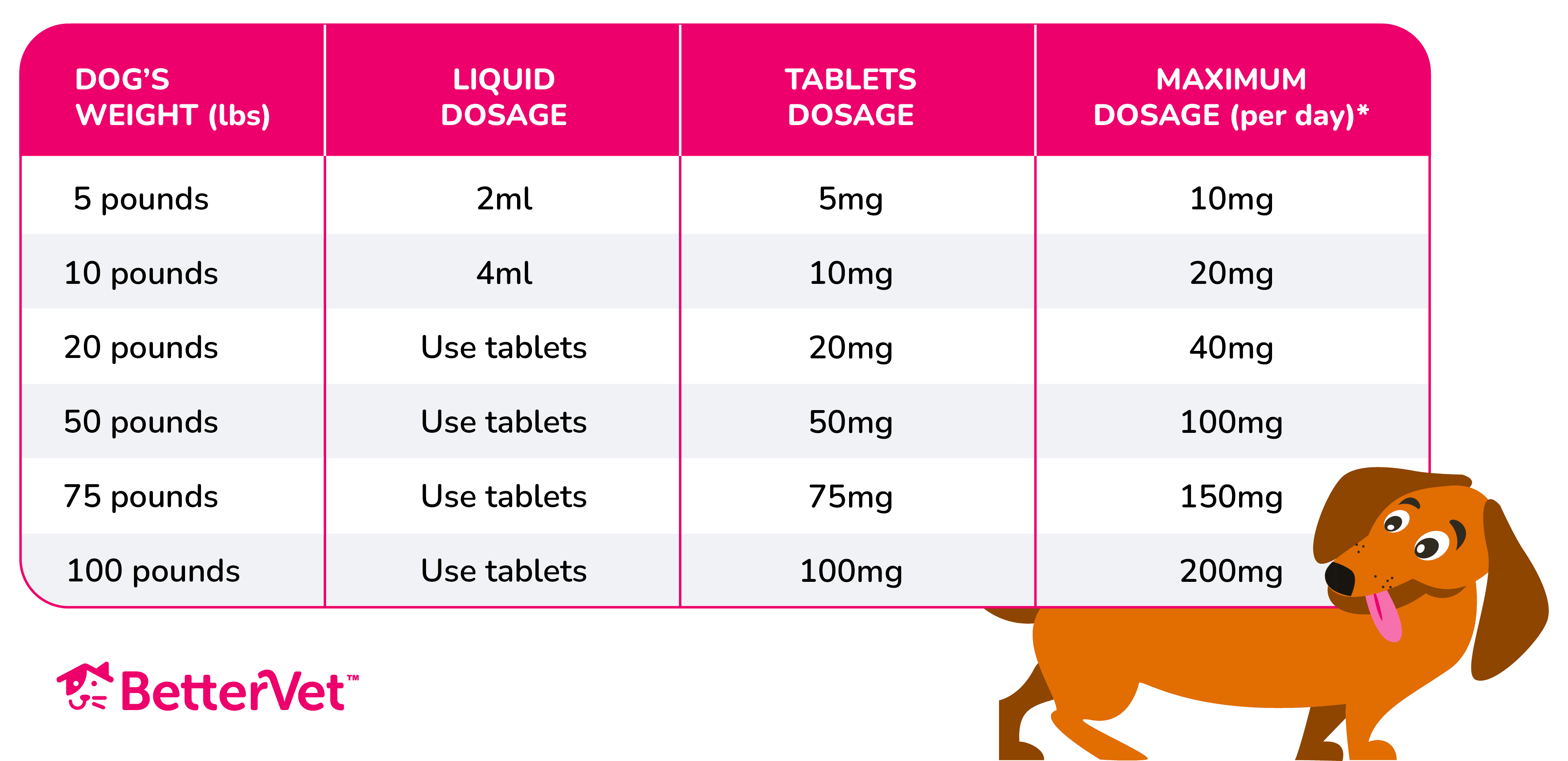Hi, everyone! It’s Dr. Kingsley from BetterVet. Stay tuned as I discuss some common over-the-counter medications that might help your dog in a pinch, and a few that you should avoid.
Sometimes, dogs experience low-grade pain and discomfort that can be treated at home*. While it’s always best to consult your veterinarian for any serious health concerns, there are a few over-the-counter medications that can provide temporary relief for common canine issues.
Key Takeaways:
-
Before administering any over-the-counter or human medication to your dog, always consult with your veterinarian to ensure it’s safe and appropriate for their specific needs.
-
Incorrect dosages can be harmful to your pet. Follow the veterinarian’s instructions or use a pet-specific dosage calculator.
-
Watch for any adverse reactions to medications. If you notice any concerning symptoms, contact your veterinarian immediately.
Antihistamines
For dogs with allergies, antihistamines can be a helpful tool. These medications work by blocking the effects of histamine, a substance released by the body in response to allergens.
Here are a few commonly used antihistamines for dogs:
Benadryl
Benadryl is the most common one and is safe for dogs to help alleviate itching, scratching, and other signs of allergic reactions.
As a rule of thumb, you can give your dog one milligram of Benadryl per pound, twice per day. If your pup is in-between dosages, weight-wise, I always recommend starting with the lowest number and then you can go up from there.

If you forget that formula, you can use our helpful Benadryl Dosage Calculator and do your own math.
Zyrtec
The other medication in that same family that we use is Zyrtec, another antihistamine that works in a slightly different way. Zyrtec is safe for dogs with allergies, but you should always consult your vet for the proper dosage.
Topical Medications
Sometimes, our furry friends develop skin irritations or minor wounds. Topical medications can be applied directly to the affected area to provide relief and promote healing.
Here are a few safe options for dogs:
Chlorhexidine
Sometimes people forget that topical medications are still medications and need to be used judiciously. If your dog has developed a small little rash or mild skin allergy that may not warrant a vet visit Chlorhexidine is an effective go-to.
Chlorhexidine is an over-the-counter antiseptic that kills bacteria and fungi on the skin and rarely causes side effects.
Neosporin
Another topical medication is Neosporin, a triple antibiotic ointment that can help with minor skin irritations. Neosporin isn’t harmful, but should not be licked or ingested.
Avoid using either of these medications and seek veterinary attention if your pet has an open wound.
Gastrointestinal Medications
Upset stomachs can be uncomfortable for our canine companions. If your dog is experiencing diarrhea, constipation, or heartburn, these over-the-counter medications might provide some relief.
Pepto-Bismol
The most common OTC gastrointestinal medication for dogs is Pepto-Bismol. Most of us humans have taken some form of Pepto-Bismol in their life, and it is perfectly safe for most dogs to take.
If after 12- 24 hours your dog is still experiencing tummy troubles or those symptoms are getting worse, I recommend discontinuing the Pepto-Bismol and have a veterinarian conduct a full evaluation.
Be sure to let your veterinarian know that you’ve been giving your dog the medication how often, as it can change the color of your dog’s stool and alter the way an x-ray would look.
Miralax
Miralax is another common OTC medication that can sometimes be given to dogs to treat constipation at home. For this one, it’s very important to consult with your veterinarian before using, because if your dog is not completely hydrated, it can actually do more harm than good.
A natural alternative to OTC medications for constipation is pumpkin. Most dogs like the taste of pumpkin (and some cats, too).
Antacids
Similar to when we humans suffer from heartburn, sometimes our canine patients can have similar issues. Medications like omeprazole or famotidine can help alleviate some of those symptoms in dogs.
Nonsteroidal Anti-Inflammatory Drugs (NSAIDs)
Nonsteroidal Anti-Inflammatory Drugs (NSAIDs) are a class of medications used to reduce pain, inflammation, and fever in pets.
Aspirin
As veterinary professionals, we get asked about aspirin and other OTC painkillers for dogs.
*Aspirin has not been proven to alleviate pain in dogs and can also thin their blood, which could be dangerous in a home setting.
If you feel your pet is uncomfortable or you feel like they could benefit from an OTC anti-inflammatory, do not grab one off the shelf, but consult with your veterinarian for what’s the safest and best option.
Gabapentin
While Gabapentin is not available over-the-counter for either humans or pets, if we have it sitting in our medicine cabinet for our own use, it might be tempting to give it to your dog.
Gabapentin is prescribed for dogs for pain, anxiety, and sedation. However, the dosing for a dog vs. a human is very, very different.
Just because you have a bottle of it sitting at home, that doesn’t mean it’s safe to give it to your pet without consulting your veterinarian.
Final Considerations
OTC and human medications should only be given to your dog under the guidance of your veterinarian, who can confirm whether it is safe and recommend the proper dosage for your pet’s weight.
Other reasons to contact your veterinarian would be if you observe any adverse reactions to medications, or if your pet’s symptoms persist or worsen.
Frequently Asked Questions
What can I give my dog for immediate pain relief?
Consult your veterinarian for NSAIDs that are safe, or formulated for dogs. This could include OTC or prescription pain medications.
Is there an OTC inflammatory for dogs?
No. Currently, there are no FDA-approved over-the-counter NSAIDs for dogs. Your veterinarian will know which anti-inflammatory medication is best for your pet.
Can I give my dog over-the-counter medication?
Yes, with veterinary guidance, there are (OTC) medications that are safe to give your dog. However, it’s important to use a medication and dosage that has been approved by your veterinarian.





